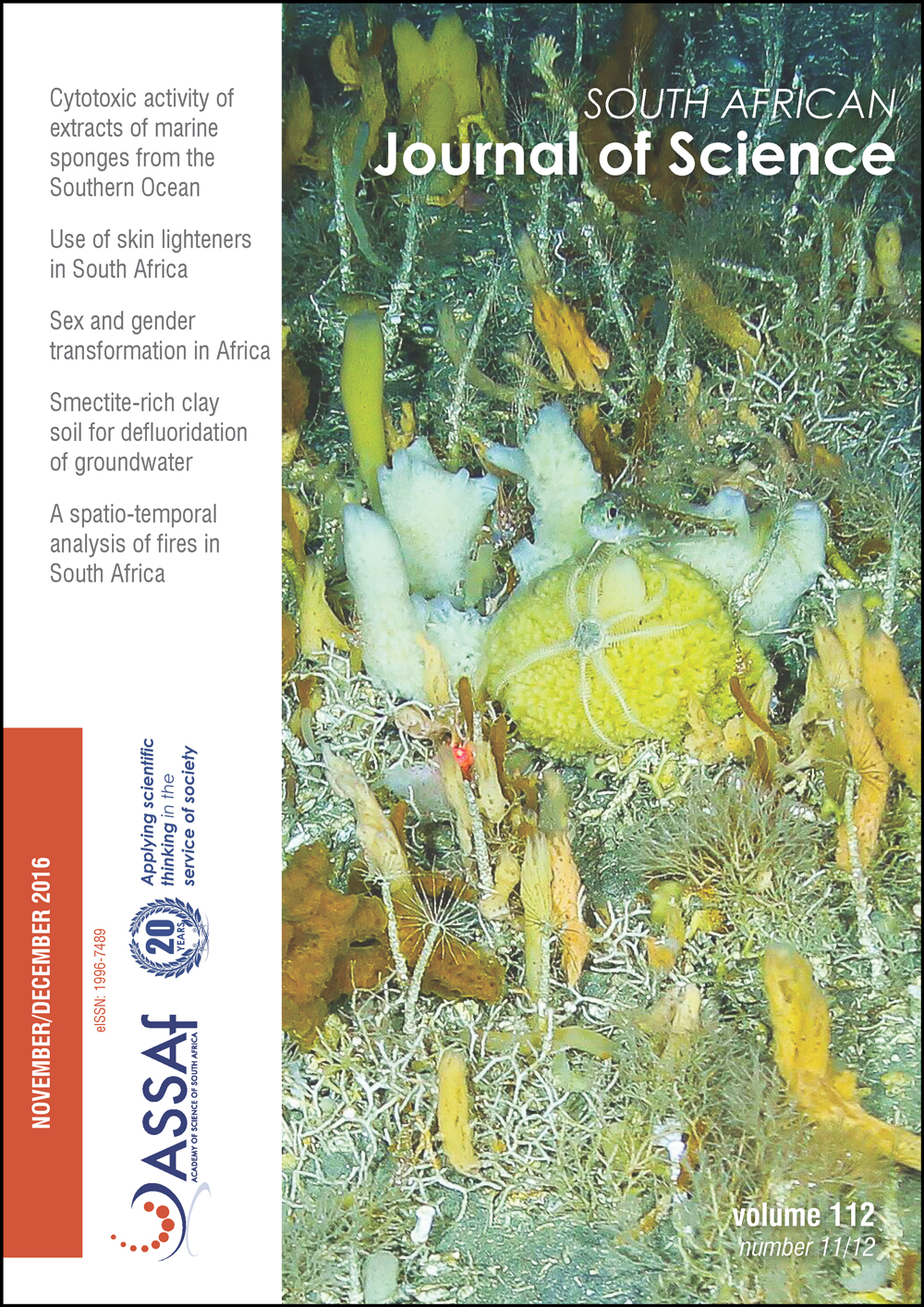Stirred cell ultrafiltration of lignin from black liquor generated from South African kraft mills
DOI:
https://doi.org/10.17159/sajs.2016/20150280Keywords:
membrane, retention, flux, fouling, pressureAbstract
Ultrafiltration of lignin from black liquor was carried out in a stirred batch cell using polyethersulfone membranes. Parameters such as operating pressure, feed concentration, stirring rate and membrane cut-off size were varied and their effects on lignin retention and permeate flux were investigated. The operating pressure, feed concentration and stirring rate were varied in the ranges 150–350 kPa, 3–9% and 200–400 rpm, respectively. The membranes used had cut-off sizes of 5 kDa, 10 kDa and 20 kDa. A one-factor-at-a-time experimental design approach was applied in this study. Retention of lignin increased with increases in operating pressure, feed concentration and stirring rate, but decreased with an increase in molecular cut-off size of the membrane. Permeate flux on the other hand increased with increases in pressure, stirring rate and molecular cut-off size of the membrane but decreased with an increase in feed concentration. The extraction of lignin from black liquor was successfully carried out and extraction efficiencies as high as 86% could be achieved depending on the experimental conditions. The study was concluded with the recommendation of conducting additional experiments using a pilot plant in a continuous mode.
Significance:- The extraction of lignin from black liquor was successfully carried out and extraction efficiencies as high as 86% were obtained. The results can be used to extend the ultrafiltration of black liquor to an industrial scale.
Downloads
Published
Issue
Section
License

All articles are published under a Creative Commons Attribution 4.0 International Licence
Copyright is retained by the authors. Readers are welcome to reproduce, share and adapt the content without permission provided the source is attributed.
Disclaimer: The publisher and editors accept no responsibility for statements made by the authors
How to Cite
- Abstract 425
- PDF 413
- EPUB 211
- XML 239
- Supplementary Material 215













.png)